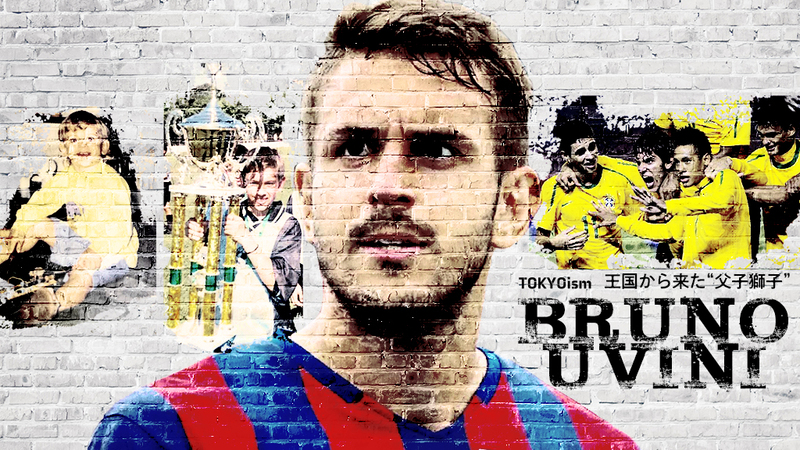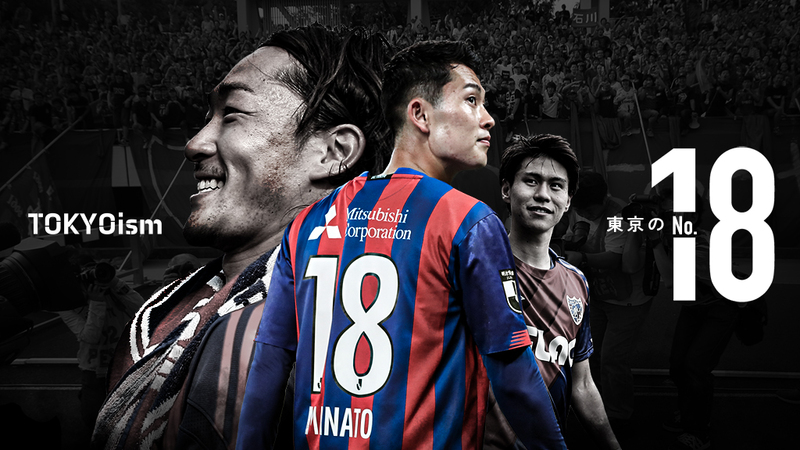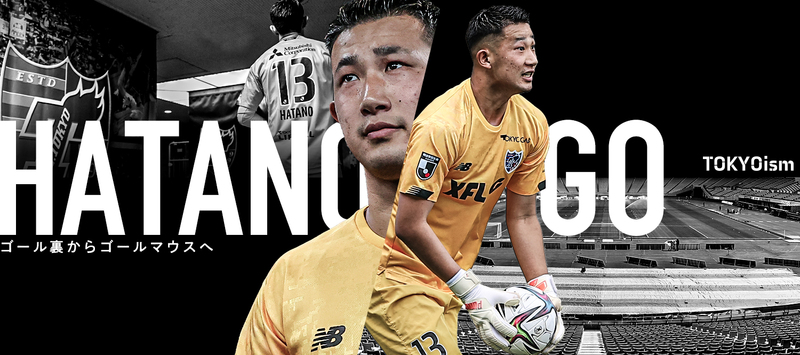In the past, there was the "King" Pele. And in recent years, Neymar. In Brazil, it is not uncommon to have professional football players across two generations of a family.
Bruno UVINI is also one of those who is part of that lineage.
What he inherited from his father, who also lived as a defender (center-back), was not only soccer talent but also a fighting spirit and leadership. In a soccer kingdom where one cannot survive on skill alone, Bruno has honed a lion-like strength of heart.
"Kingdom" Brazil national team conquered the world, and after experiencing glory and suffering, chose the new land of blue and red as the "father and son lions." This follows their journey and determination.
Captain of World-Class Masters
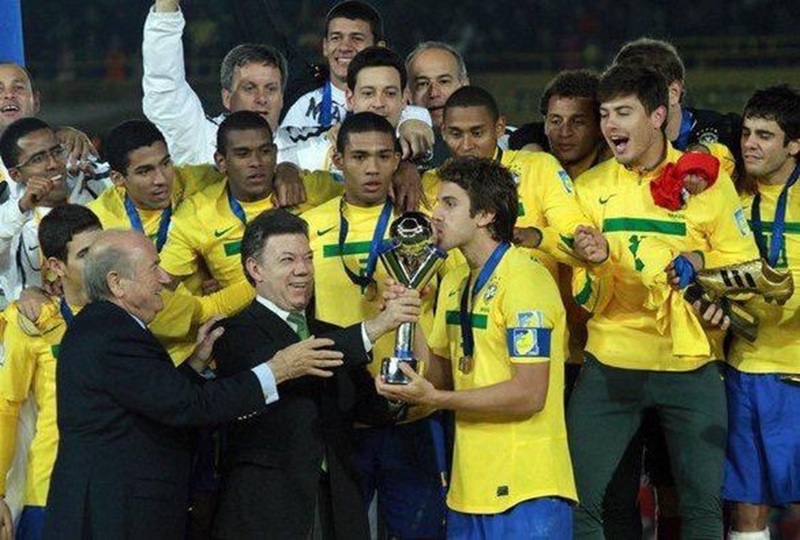
In the largest South American country, where soccer is as natural as breathing, there are numerous expressions related to soccer in everyday life.
One way to describe making a good start is to say "entering with the right foot," and Bruno was strongly stepping forward with his right foot in Japan, 17,000 kilometers away from his home country.
On April 28, 2021, in the away match of the YBC Levain Cup group stage Sec. 4 against Tokushima Vortis. In the second minute of the second half, after trailing by one goal, Leandro scored with a header from a left corner kick.
Bruno showed a joyful expression after scoring the equalizing goal, even while losing his balance. However, what he has always valued the most is his professional skills and his attitude towards football.
"The first thing required as a goalkeeper is to not let the opponent score."
While always maintaining the pride of being a "guardian," what I have consistently focused on since my teenage years is the dedication to teamwork.
At São Paulo FC, where he was teammates with Casemiro (Real Madrid) during his U-20 days, he contributed to winning the Copa São Paulo, a gateway for youth development. He fought alongside Neymar, Coutinho, and Oscar in the Brazil national team at various age levels, shining as the world champion at the U-20 South American Championship and the U-20 World Cup in 2011, with the captain's armband always wrapped around Bruno's left arm.
It is a difficult task to gather the quirky candidates who truly believe they are the best in the world. While their skills on the pitch are important, without a personality that can earn the respect of these unique individuals, the title of captain will not be granted in Brazil.
Mentality that turns humiliation into strength
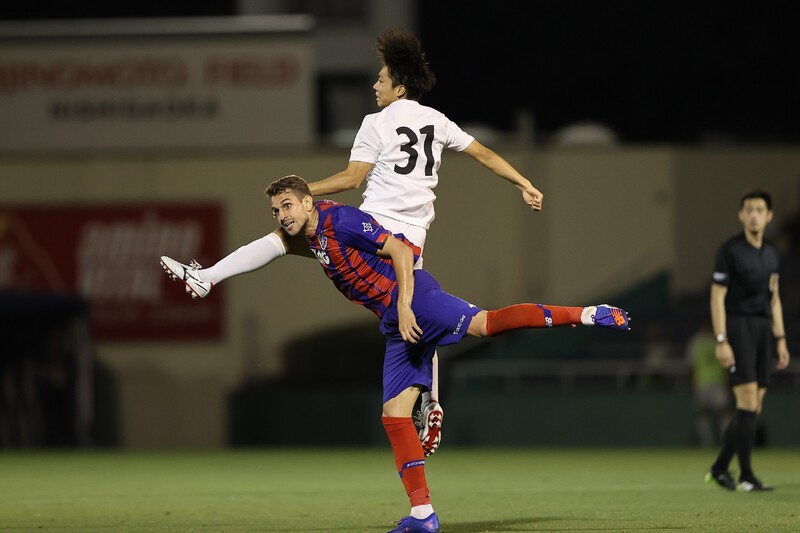
Since passing the youth academy of São Paulo FC, he has had a smooth career as a super elite, and in 2012, he engraved the title of "Seleção" on his resume. However, in Japan, where he was supposed to smoothly enter with his "right foot," an unexpected pitfall awaited.
"I have always wanted to stand on the pitch quickly and respond to the feelings of the fans and supporters."
Since joining FC Tokyo, he has been retweeting and responding to posts from fans and supporters on his Twitter, reflecting his strong feelings for those who support him.
The Emperor's Cup 2nd Round match against Juntendo University held at AJINOMOTO FIELD NISHIGAOKA was my debut match at home. I was determined to deliver a victory to the fans and supporters, but the team would suffer an unexpected defeat here.
Bruno had to leave the pitch just before the end due to a broken tooth from contact with an opponent, and he heard the whistle for an undesired time-up. Looking back on his career, he has never lost to an amateur opponent in an official match.
Bruno experienced a humiliation that he did not even feel when he allowed Messi to score a hat-trick in the 2012 match against Argentina, where he wore the Brazilian national team's uniform for the first time and lost 3 to 4 after playing the full match, against a university student.
"For a big club like Tokyo, that result was never acceptable. There are no excuses for that result. I only feel sadness, but all I can say is that we will not repeat the same thing again."
Reflecting on his debut match at home as if to remind himself, he is a man who has also tasted the frustration of not being able to play in big clubs, in stark contrast to his glamorous career as a former Brazilian national team player.
That gaze was already directed towards the next battle. Immediately after losing to Juntendo University in the Emperor's Cup, the first to report the disappointment was his father. "Dad is a tougher coach than Kenta HASEGAWA," he said, and the mental strength honed since childhood would not be broken by a single loss.
Glory and Struggles of Youth
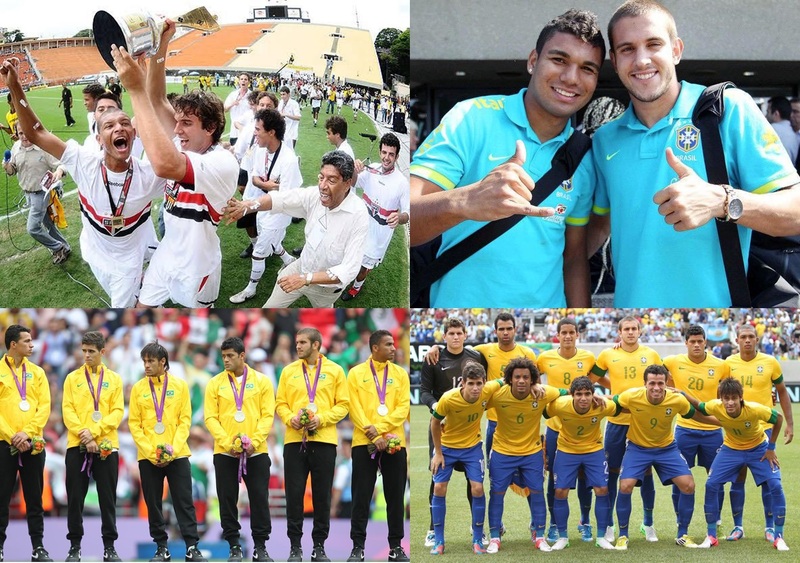
"Like father, like son" is expressed in Japan, but there is a similar proverb in Brazil.
Like father, like son (The child of a fish is a small fish).
Bruno's father, Mr. Tuka, was a professional player who excelled as a center-back at the prestigious Ponte Preta, although he never reached the Seleção. Born in the rural town of Capivari, about 400 kilometers from São Paulo, the largest megalopolis in South America, Bruno began his journey in soccer at the soccer school "PITA de Crack" opened by his father.
Mr. Tuka stated that his aim is not for profit or to nurture future professional players, but rather to provide human education to children and convey the greatness of sports.
Since Mr. Tuka knows firsthand that being a professional soccer player is not a stable career, the purpose of letting Bruno kick the ball was not to lead him down the path of professionalism, but rather to prevent him from getting hooked on video games and the internet.
When Bruno, who had been kicking a ball since he was 4 years old, was 11, he firmly told his mother something.
"Mom, I'm going to be a soccer player"
In his early years, he played in attacking positions such as midfield, but what stood out even then was his disciplined play and dedication to the team. As his physical strength became more pronounced over the years, the coaches at that time recognized his suitability for the Zagueiro position.
At the age of 14, he was scouted by a club known for its development, Pon de Asukar, and decided to live in São Paulo, away from his parents, but the bond between Brazilian parents and children is stronger than one can imagine for Japanese people.
"Even now that I am 30 years old, my mother doesn't like living far away," he says with a wry smile, but one of the routines he never misses before a match is calling his mother to pray for her child to play on the pitch without injury. When he decided to play at Ponta de Asúcar, his mother was said to be in tears of sorrow, but Mr. Tuka, knowing his son's determination, encouraged him like this.
"If you want to succeed, have a strong mindset, do your best every day, and be sincere. If you hold onto your beliefs and feelings, you will definitely succeed."
It was São Paulo FC, which has one of the best youth development systems in Brazil in recent years, that took notice of the boy born in Capivari, who was beginning to make a name for himself at Pão de Açúcar.
At São Paulo FC's youth academy, which has nurtured numerous Brazilian representatives such as CACA, Oscar, Casemiro, and Lucas Moura, a daily battle for survival awaited.
"In São Paulo, new players join the youth teams from all over Brazil every week. Therefore, the competition is intense, and to become a professional, you have to win every tournament in the youth teams. It's a saying often heard in the football world, but it was like having to defeat a lion every day."
From my father, I received advice and mindset as a center-back, and at times, harsh words that were almost like insults, as we walked together not as a father and son but as a "father and son lions." For Bruno, Tuka was not only an admired footballer but also the best coach.
"He is a role model for me, and even now, he is still the most demanding coach. Even as a professional, there are times when I get scolded and receive harsh words from him."
Bruno, who has immense respect for his father, who is also his mentor. However, in terms of achievements on the pitch, he has accomplished many honors that his father, Tuka, was unable to attain.
On January 25, 2010, under a clear blue sky at Pacaembu Stadium in São Paulo, Bruno was immersed in the joy of his first career triumph.
A Champion――. The Copa São Paulo, with 92 clubs participating from all over Brazil, is a tournament that attracts nationwide attention and is held on the anniversary of the city of São Paulo. Bruno, who won the championship alongside Casemiro, raised the trophy as captain. In the stadium, there was the figure of Mr. Tuca, who had stood on the final stage as a member of Ponte Preta in his youth but ended up as the runner-up.
'Before the match, my father told me, 'Do your best, my son. I could only be the runner-up, but now it's your turn. Go and win the championship.' This still leaves a deep impression on me.'
Bruno, who has achieved the title that his father could not, is expected to be a hope for the next generation of Brazil, alongside Neymar and Coutinho, not only for São Paulo FC.
However, at that time, the center-back lineup of São Paulo FC was filled with some of Brazil's top players, including Miranda. Given that experience is crucial for this position, even the young prodigy who shone at the U-20 World Cup struggled to find playing time and spent days in anguish. He moved to Europe at a young age and was part of prestigious clubs like Tottenham and Napoli, but here too, he was blocked by more experienced players.
Nevertheless, he has continued to write a luxurious history on his resume, including his appearances for the Brazil national team and a silver medal at the London Olympics, even though he was not a regular player. However, it is true that he has not always been able to show the kind of play that satisfies the pride of being a former Seleção in his home country of Brazil and in Europe.
Thoughts on Japan. An Unexpected Connection with Amaral
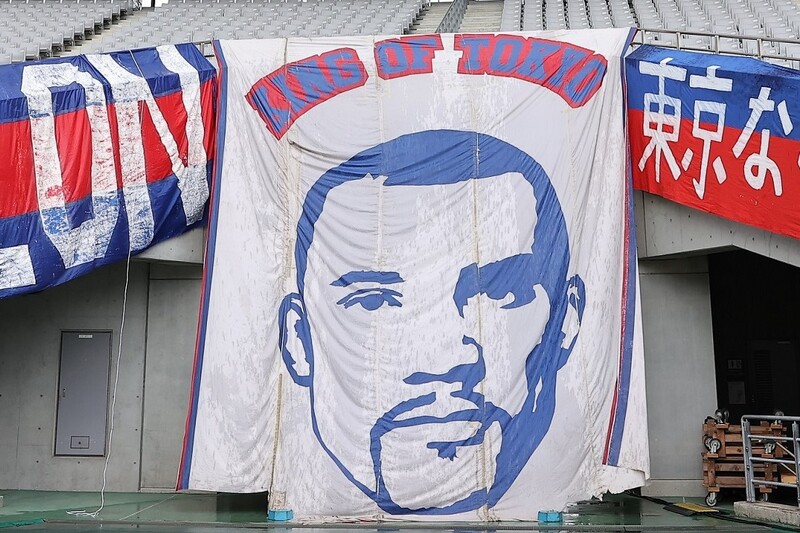
Bruno spent his last season in his 20s in Saudi Arabia, where he also won the league championship as captain of the prestigious Al Nasr SC. He was experiencing the best moment of his career in the Middle East.
Realizing his dream of becoming a professional soccer player, Bruno also achieved the grand goal he half-jokingly told his mother as a boy: to become a member of the Brazil national team. Since leaving the town of Capivari at the age of 14, he has faced obstacles and celebrated victories, and one of the remaining dreams for him is to play in Japan.
"I have had the opportunity to come to Japan twice to play matches. The first time was when I was 16 and part of the São Paulo youth team, and the second time was when I came to Japan as a member of the U-20 Brazil national team for the Sendai Cup. When I first came to Japan as a member of São Paulo, I was captivated by this country. I want to play in Japan someday."
Those words are never just a formality.
He frequently contacted Leandro DAMIAO, who was his teammate in the Brazil national team at the London Olympics, and Joao SCHMIDT, who was a junior during their time at the youth academy of Sao Paulo FC, to gather information about the J-League.
And from Leandro DAMIAO, I heard, "Bruno, playing in the J-League is not easy as it is a very competitive league. The Japanese players play with great dedication, and every match is difficult." However, he also said, "Japan is a wonderful country and a place worth knowing," which resonated with me.
What is common among Brazilian players who succeed in Japan, not just at FC Tokyo, is their dedicated attitude. Bruno is already aware of the lineage of predecessors born in the kingdom, such as Amaral and Lucas, who captivated fans and supporters with their personalities.
"I must thank those predecessors from Brazil. It is because they did a great job at this club that the path has been opened for us."
And when the conversation shifted to Amaral's presence, unexpected connections were revealed.
"It's a coincidence regarding Amaral, but he lives near my hometown of Capivari, and on top of that, he knows my father. Amaral used to play for a team called Capibariano in the city of Capivari. It's an unbelievable story, right? So when it was decided that I would transfer to Tokyo, Amaral said, 'I can't believe Bruno is going to play in Tokyo. How wonderful is that?'"
Bruno, who is seeing the large banner saying 'KING AMARAL STADIUM' displayed in the goal stand of Ajinomoto Stadium, along with a flag depicting Amaral's face and the words 'KING OF TOKYO', is now pledging in his heart for success with FC Tokyo.
"Amaral is really loved by this club. There is a flag that says 'KING OF TOKYO' displayed in the stadium. I saw it in the stadium too, and it was a fantastic sight. It's not easy for a Brazilian to gain that kind of respect in a foreign country."
A man of his word shaping the future
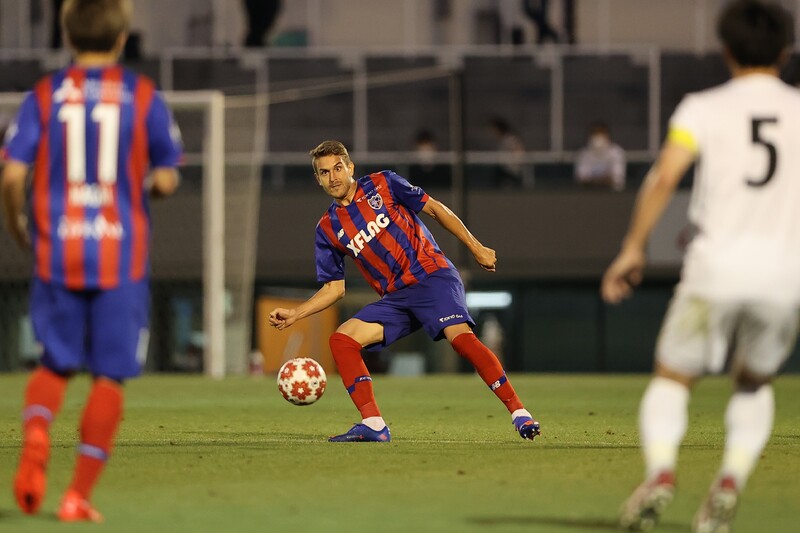
The fact that this transfer is not just a temporary move is demonstrated by his efforts off the pitch. While he feels reassured by the presence of compatriots like Diego OLIVEIRA and Leandro, with whom he has matched up as opponents during his time in Brazil, he also intentionally shares lunch with Japanese teammates after practice and studies Japanese online, all in pursuit of fitting in as quickly as possible.
Bruno smiles proudly during a moment when he went to the police to obtain his international driver's license.
"I was asked for my date of birth by the police, and I answered in Japanese that it was June 3, 1991. As a center-back, I have to give instructions in Japanese, and I can say things like 'dangerous.' I learned Japanese terms like 'behind,' 'left,' 'right,' and 'clear' first, especially those used during defense."
Since joining, Akihiro HAYASHI has had a good relationship with Go HATANO, who speaks Spanish and often teases him. As they enhance their chemistry off the pitch, they are fully aware that the opportunity to overcome the frustration felt in the Emperor's Cup lies ahead in the battles of the J1 League and the Levain Cup, where they aim for consecutive victories.
Bruno UVINI is a man of action.
"Respect your teammates and always play for the team," was instilled in me by my father, and I have fulfilled many dreams with that style.
Now, wearing the blue and red uniform of the capital club of Japan, Bruno only wishes for the glory of Tokyo.
"Winning and holding up the trophy. To leave my positive memories with this club, I need to become a champion. Tokyo, which gave me the chance, has the power to become champions. I feel that the Levain Cup offers a chance for consecutive victories, and I believe this club has great potential."
The player wearing number 5 hopes to be called by the nickname "Lion Heart" even in Tokyo. The "Father and Son Lion" raised in Brazil is determined to show a lion's fierce performance on the blue-red final line.
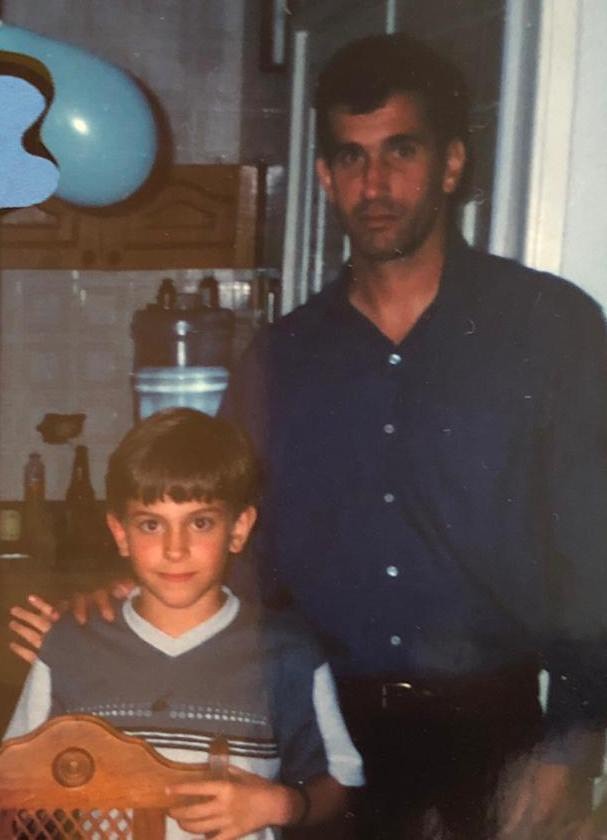
Height/Weight: 186cm/84kg
Place of Origin: Brazil
Career: Career: São Paulo FC (Brazil) → Tottenham Hotspur FC (England) → SSC Napoli (Italy) → SS Robur Siena (Italy) → Santos FC (Brazil) → FC Twente (Netherlands) → Al Nasr SC (Saudi Arabia) → Al Wakrah SC (Qatar) → Al Ittihad (Saudi Arabia)
Interview and Text by Masaki SHIMOZONO
Photo by Kenichi ARAI
Photo Cooperation by Bruno UVINI
Direction by Tomoo AOYAMA
